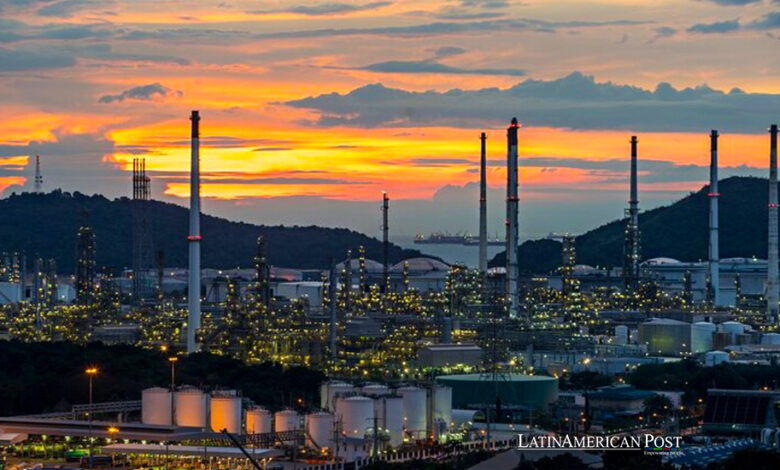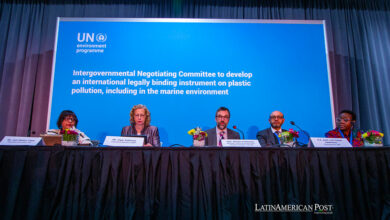Latin American Oil Giants Among Top Global CO2 Emitters

A recent InfluenceMap study highlights Repsol, Pemex, Petrobras, and other Latin American companies as significant contributors to global carbon emissions, emphasizing the urgent need for regional environmental accountability in the post-Paris Agreement era.
The environmental impact of corporate activities has become a global concern, with a recent analysis by InfluenceMap drawing attention to the significant contributions of Latin American companies to worldwide carbon dioxide (CO2) emissions. The report underscores the region’s pressing environmental challenges, highlighting the activities of major players like Repsol, Pemex, Petrobras, and others in the fossil fuel and cement industries as substantial contributors to the carbon footprint.
Unveiling the Scale: Latin America’s Contribution to Emissions
In InfluenceMap’s detailed examination, an alarming 80% of the carbon emissions after the landmark Paris Agreement of 2016 were traced back to a select group of 57 companies in the fossil fuel and cement sectors. Further deepening the concern is that 88% of emissions are linked to a broader list of 117 producers, with Latin American corporations featuring prominently in this lineup.
Saudi Aramco leads the global list, contributing 4.8% to the total global emissions, with other international giants like Gazprom and Coal India following suit. However, the spotlight turns to Latin America with Mexico’s Pemex, which accounts for 1.0% of the global emissions, ranking twelfth. Brazil’s Petrobras follows closely, contributing 0.8%, and other regional entities like Venezuela’s Petróleos and Colombia’s Ecopetrol also make the list, marking a significant regional footprint in the global emissions scenario.
The analysis also covers companies that are lower on the emissions scale yet noteworthy for their environmental impact, including Ecuador’s PetroEcuador, Argentina’s YPF, and Mexico’s Cemex. These findings highlight a pervasive challenge within Latin America’s energy and cement sectors, emphasizing the region’s substantial role in the global environmental equation.
InfluenceMap’s report leverages data from the Carbon Majors database, which attributes more than 72% of industrial carbon emissions since the Industrial Revolution to the activities of significant fuel and cement producers. This historical perspective sheds light on the enduring nature of industrial contributions to global warming and climate change, with Latin American companies playing a notable part.
A Call to Action for Latin America
This report is a clarion call to action for Latin American nations. The region, known for its rich biodiversity and natural beauty, is at a crossroads, facing the dual challenges of economic development and environmental sustainability. The significant ecological footprint of its energy sector is now under international scrutiny, prompting calls for comprehensive policy reforms and industry practices prioritizing ecological sustainability over short-term economic gains.
Also read: Brazil’s B3 Pioneers Bitcoin Futures in Latin America
The InfluenceMap study serves as a critical reminder of the interconnectedness of global industries and their collective impact on the environment. It highlights the urgent need for Latin American countries and their corporate giants to reassess their operational models and embrace cleaner, more sustainable energy practices. As the world moves towards a greener future, the actions of these companies will not only shape their environmental legacy but also define their role in the global community’s efforts to combat climate change.
In sum, the InfluenceMap report’s findings are a wake-up call for Latin American corporations and policymakers alike. They underscore the imperative to foster a sustainable balance between economic growth and environmental stewardship, urging a shift towards green innovation and responsible corporate conduct to mitigate the ongoing climate crisis.





